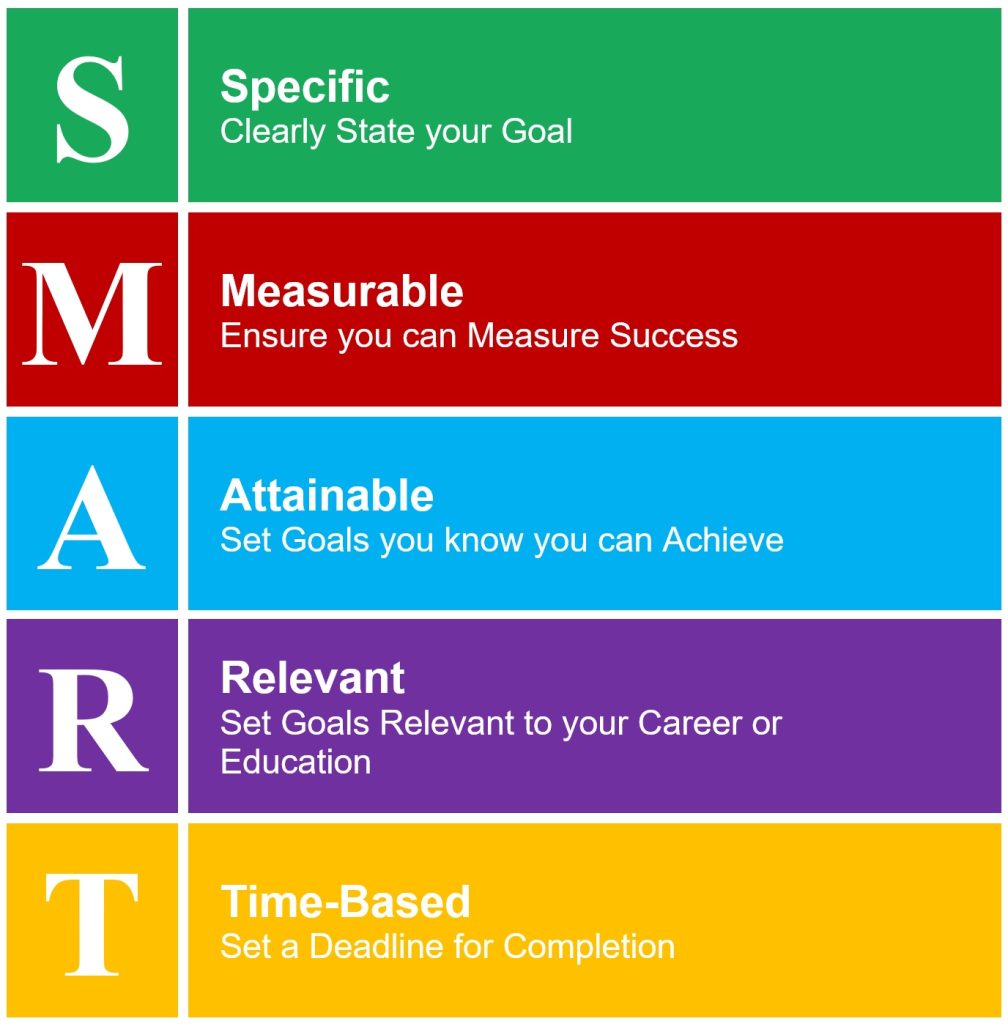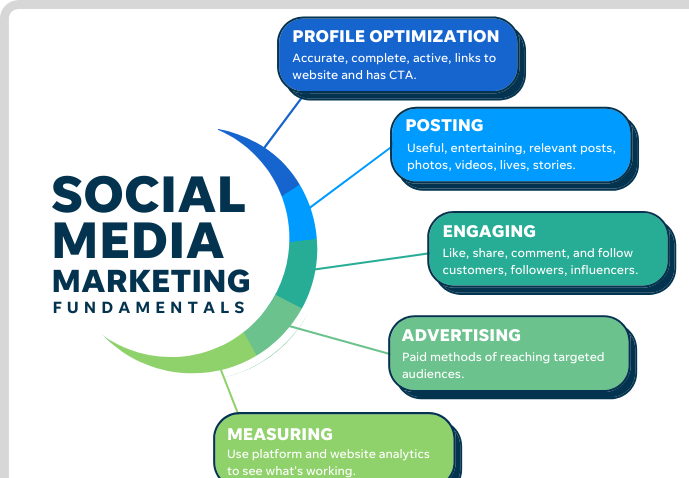Small businesses tend to interact with their audience more directly, and on fewer fronts than corporations. Although you may have fewer resources, small businesses have many advantages if used wisely. Creating SMART goals to connect with your audience can make all the difference.
 What are SMART goals?
What are SMART goals?
The SMART acronym stands for goals that are specific, measurable, achievable, relevant, and timely. They are impactful for business marketing strategies, project management, and overall growth because they encourage you to look into your market and evaluate how your business stacks up. It provides a model to identify strengths, track progress, and have room for improvement.
Here’s a more detailed SMART goals definition:
Specific
Having a clear, specific outcome in mind is key to making a SMART goal. Making a specific goal means that you can narrow your focus—whether this is on marketing, data collection, sales, or customer relationship management—and get a concise picture of exactly what you want to achieve and thus, what steps you should take to accomplish this goal.
Measurable
When you set goals, it’s important to make sure you know what metrics you will use to evaluate whether and when you’ve met your goal.
Measurable goals and objectives can be quantitative, like how many returns or outputs you receive or produce; or they can be qualitative, based on the quality of those same returns or outputs.
Achievable
It’s important to prioritize achievability when you set business goals. This isn’t to say you shouldn’t dream big, but a goal that you can take feasible steps towards will tell you more about the nature of your business, the way you run it, your customers, and the goal itself, rather than working towards something outside your capacity. By defining achievable goals, you’re also allowing yourself to experiment with what works best for reaching this goal, based on your measurements.
Relevant
Relevancy, in the case of SMART business goals, refers to the pertinent characteristics of your business. Most businesses want to attract a bigger audience and increase their revenue, of course, but relevant goals help you identify what you will do specifically to grow your business. If you run an online magazine, for example, a relevant and time-bound goal is to increase the number of monthly subscribers by 25% this quarter. Subscribers are relevant to the success of your business, and thus the goal meets SMART criteria.
Timely
Having a timeframe for when you want to achieve your goal makes the process of planning and executing clearer and more organized. A deadline can be a powerful motivator, and it will help your team work together towards a clear finish line and better time management. Plus, working towards timely goals can give you insight into a certain time of year or the seasonality of your business, which might inform future goals.
Why are SMART Goals Important?
Why is being SMART important, and where does it factor into your small business plan?
SMART goals offer small business owners actionable steps towards improvement, measurable outcomes, and ultimately, scalable success.
Vague goals (like, “Find more customers”) can leave business owners feeling over-extended without a clear focus, or unsatisfied without substantial evidence of achievement.
Actionable, achievable goals, that are relevant and timebound, with measurable outcomes are crucial for surviving the inception years of your new business. They can lead to sustainable growth and innovation throughout the life of your company or your career development.
How to set SMART goals
You can start writing your own SMART goals in a few ways:
- Use the SMART acronym as an outline. Write down a goal, then break down how the goal is specific, measurable, achievable, relevant, and timely. Provide details about your goal for each letter in the acronym. You can use a list format, a flow chart, or an outline—whatever keeps your thoughts organized and helps to reach this goal.
- Use a past/present/future question model. Ask yourself questions like: What have I already done? What is the current outcome? Where do I want to be at the end of this month/quarter/year? Although this model prompts you to look to the future, make sure to keep the goal time and focused.
- Use marketing software data. Marketing software can provide a foundation to set SMART goals. SMART goals are based on the quantitative data you’ve already collected. Remember, the data itself is only a starting point; its usefulness is determined by what you do with it.
Use this SMART goal framework that will help you to definitely a better action plan with the steps you’ll need to take, resources necessary to get there, and milestones to track progress along the way. With SMART goals, you’re more likely to achieve your goal efficiently and effectively.
Small business goal examples
Let’s take some common small business goals and make them SMART:
- “Build more customers” vs. “Secure 6 new business accounts before the end of the quarter.” Six is specific, securing new accounts is relevant to the ultimate goal of the business, having a quantitative goal correlates to measurable success, it’s small enough to be achievable, and “end of the quarter” is timely.
- “Make more profits” vs. “Increase revenue 10% each quarter until the end of the fiscal year.” 10% is a specific, measurable amount that’s relevant to the goal of increasing overall profits. It puts “increase revenue” into achievable terms, and using quarters of the fiscal year is time measurement.
SMART business goals are about building focus, deepening relationships with your audience, achieving your goals, and improving your strategies as you grow. By using the SMART framework, you can improve your business operations, and project management and start achieving the goals that matter most.
You can also write SMART goals for personal use, goals that can help you in your career development and achieve the success you want. Using the SMART goal framework can organize the process and provide structure before you begin any projects for your small business.




